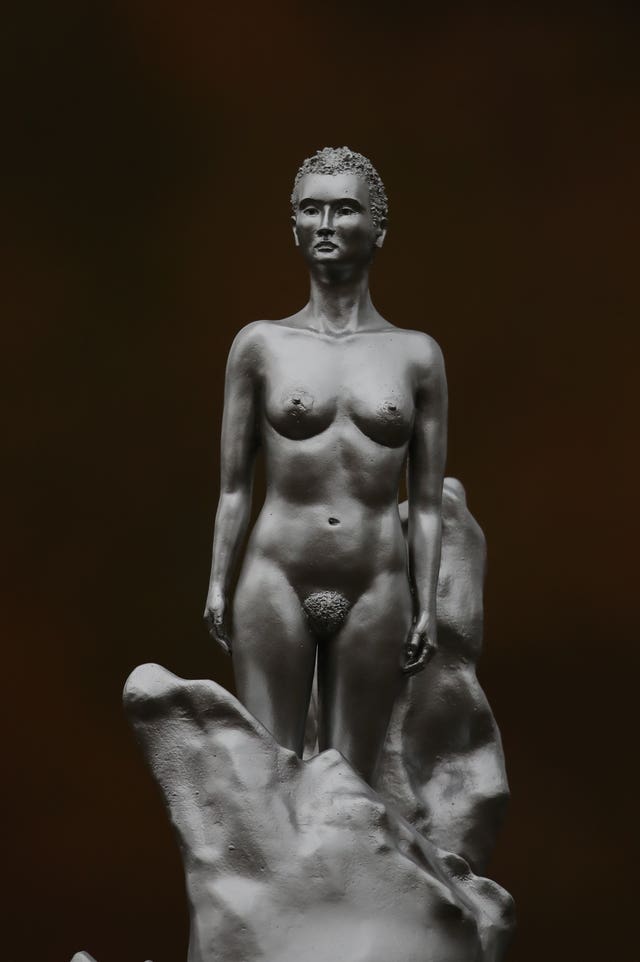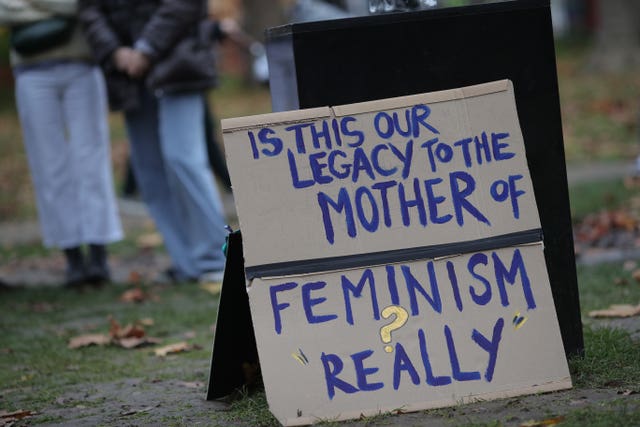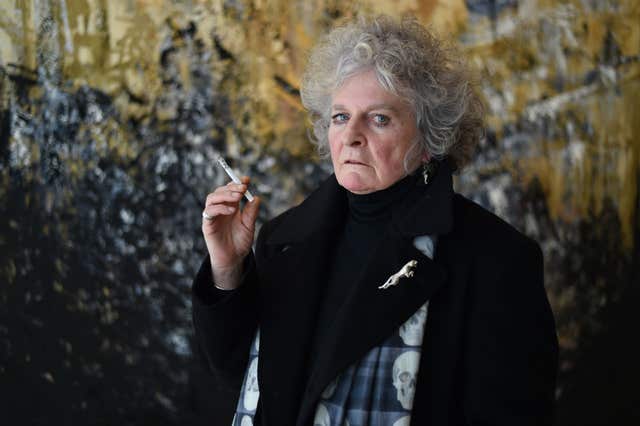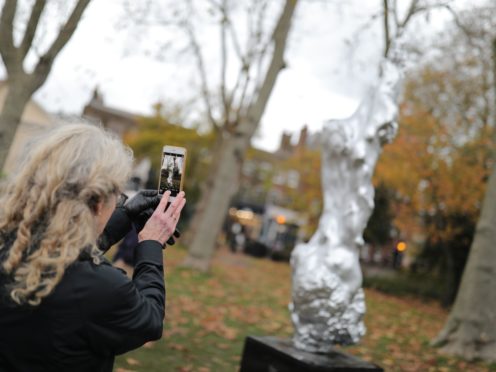Maggi Hambling has said she was “surprised” by criticism of her sculpture of a naked figure celebrating Mary Wollstonecraft.
Last year an artwork by Hambling was unveiled close to where the prominent feminist lived and worked in north London.
The silvered bronze statue was criticised by some who questioned why the piece, said to be the world’s only memorial sculpture to Wollstonecraft, depicts a woman naked.

Speaking to the BBC’s Today programme, Hambling said: “What sort of surprised me was the objection to the naked figure, which as you know was part of the sculpture of Mary Wollstonecraft.
“Part of the objection came from feminists.”
She said the feminists were “denying that they have bodies”, adding: “There has been nude sculpture for time immemorial.”
Discussing the reaction to the sculpture, she said “a lot of people didn’t want the Eiffel Tower in Paris”.
Hambling said it was “rather irritating” that pictures in the media had focused on the naked figure at the top of the sculpture rather than the artwork as a whole.

“People just went in for the tits and the fanny, you know. Typical,” she said.
Hambling said she thinks “more and more people are liking” the sculpture as time goes on, adding: “I never set out to be controversial, how can you set out to be controversial?
“I mean if the thing is controversial, it does show it’s got a bit of life to it.”
She added that her artwork, titled A Sculpture For Mary Wollstonecraft, “did serve its purpose in that so many more people now have asked themselves, ‘Who the hell is Mary Wollstonecraft?’”
“And they have actually found out who she was and what she stood for.”

Wollstonecraft (1759-1797) is known as one of the founding feminist philosophers and was the author of A Vindication Of The Rights Of Woman, which was published in 1792.
Hambling previously defended her sculpture, telling the PA news agency last year the figure was intended to celebrate “the spirit” of Wollstonecraft and “certainly isn’t a historical likeness”.
Writers Malorie Blackman, Caitlin Moran and Caroline Criado-Perez were among those to criticise the statue after it was unveiled in Newington Green.
